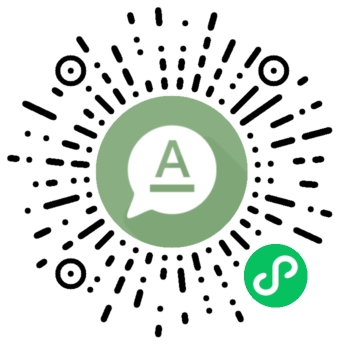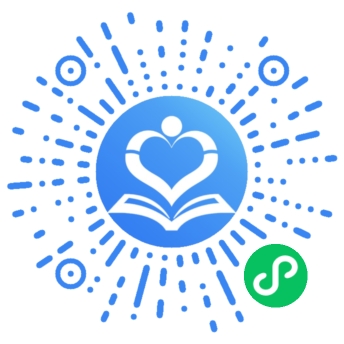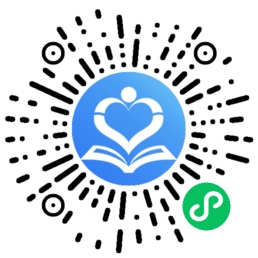中共党史专业介绍
中国共产党历史专业属于法学门类,政治学一级学科,该专业主要研究中国共产党的历史发展、理论政策与实践,探索中国共产党领导中国革命、建设、改革和党的建设的历史经验教训,揭示中国共产党执政规律、社会主义建设规律、人类社会发展规律。
英语单词分类 轻松记单词
surprise
英[sə'praɪz] 美[sər'praɪz]
"The news really surprised me"
"She surprised the couple"
"He surprised an interesting scene"
1.意想不到的事;突如其来的事;令人惊奇的事(或消息等)
Asurprise is an unexpected event, fact, or piece of news.
e.g. I have asurprise for you: We are moving to Switzerland!...
我有一个惊喜的消息要告诉你:我们要搬去瑞士了!
e.g. It may come as asurprise to some that a normal, healthy child is born with many skills...
一个身体健康正常的小孩天生就会许多技能,这或许会令有些人感到惊奇。
2.惊奇;惊讶;诧异
surprise is the feeling that you have when something unexpected happens.
e.g. The Foreign Office in London has expressedsurprise at these allegations...
位于伦敦的英国外交部对这些说法表示惊讶。
e.g. 'You mean he's going to vote against her?' Scobie asked insurprise...
斯科比惊讶地问道:“你是说他会投她的反对票吗?”
3.使惊奇;使诧异;使感到意外
If somethingsurprises you, it gives you a feeling of surprise.
e.g. We'll solve the case ourselves andsurprise everyone...
我们要自己解决这件事,然后让所有人感到吃惊。
e.g. It surprised me that a driver of Alain's experience should make those mistakes...
令我惊讶的是像阿兰这样经验丰富的司机竟然会犯那样的错误。
4.给…惊喜;使喜出望外
If yousurprise someone, you give them, tell them, or do something pleasant that they are not expecting.
e.g. surprise a new neighbour with one of your favourite home-made dishes.
做一道拿手的家常小菜,给你的新邻居一个惊喜。
5.使人惊异(或意想不到)的事物;让人大吃一惊的人
If you describe someone or something as asurprise, you mean that they are very good or pleasant although you were not expecting this.
e.g. ...Senga MacFie, one of the surprises of the World Championships three months ago...
森加·麦克菲,三个月前世界锦标赛上的一匹黑马
e.g. My father decided to slip a little extra spending money into my purse as asurprise.
为了给我一个惊喜,父亲决定往我的钱包里多塞一些零花钱。
6.突袭;使措手不及;使毫无防备
If yousurprise someone, you attack, capture, or find them when they are not expecting it.
e.g. Marlborough led his armies across the Rhine and surprised the French and Bavarian armies near the village of Blenheim.
马尔伯勒带领他的部队穿过莱茵河,在离布莱尼姆村不远的地方向法国和巴伐利亚联军发动了突袭。
7. see also: surprised;surprising
8.一点儿都不稀奇;可想而知
You can say 'surprise, surprise' if you disapprove of something because it is not surprising or original, or could easily have been predicted.
e.g. There is a shortage of carrots. So everybody starts growing carrots. Next season,surprise,surprise, there is a glut of carrots.
胡萝卜紧缺,于是大家都去种胡萝卜。等到来年这个时候,可想而知,胡萝卜就会过剩。
9.(用于遇见熟人或给别人一些意想不到的东西时)想不到吧
You can say 'surprise, surprise' if you meet someone you know or give them something when they are not expecting it.
e.g. He came back in as I was heading up to the shower. 'surprise,surprise,' he said.
我正要去淋浴时他回来了。“想不到吧,”他说。
10.使大吃一惊;出乎…意料
If somethingtakes youby surprise, it happens when you are not expecting it or when you are not prepared for it.
e.g. His question took his two companions bysurprise...
他提的问题让他的两个伙伴都愣住了。
e.g. Whenever it snows in Britain we are taken bysurprise.
每次英国下雪,我们都会感到惊讶。
What a nice surprise!
真是让人惊喜!
a surprise attack
突然袭击
There are few surprises in this year's budget.
今年的预算案没有多少出人意料的地方。
I have a surprise for you!
我要告诉你一件你意想不到的事!
It comes as no surprise to learn that they broke their promises.
得知他们食言并不让人觉得意外。
Her letter came as a complete surprise .
万万没想到会收到她的信。
There are lots of surprises in store for visitors to the gallery.
参观画展的人将会发现许多令他们惊奇的东西。
Visitors to the gallery are in for a few surprises .
参观画展的人将会见到一些令他们惊奇的东西。
a look of surprise
惊讶的表情
She looked up in surprise .
她惊讶地抬起头。
He gasped with surprise at her strength.
发现她有这么大的力气,他大吃一惊。
They couldn't conceal their surprise at seeing us together.
看见我们在一起,他们表现出掩饰不住的诧异。
I got a surprise when I saw the bill.
一看账单我吃了一惊。
Much to my surprise , I passed.
压根儿没想到,我及格了。
To everyone's surprise , the plan succeeded.
出乎所有人的意料,那个计划竟然取得了成功。
Imagine our surprise when he walked into the room!
你想象一下,他走进房间时,我们多么惊奇!
I have a surprise for you: We are moving to Switzerland!...
我有一个惊喜的消息要告诉你:我们要搬去瑞士了!
It may come as a surprise to some that a normal, healthy child is born with many skills...
一个身体健康正常的小孩天生就会许多技能,这或许会令有些人感到惊奇。
The Foreign Office in London has expressed surprise at these allegations...
位于伦敦的英国外交部对这些说法表示惊讶。
'You mean he's going to vote against her?' Scobie asked in surprise...
斯科比惊讶地问道:“你是说他会投她的反对票吗?”
We'll solve the case ourselves and surprise everyone...
我们要自己解决这件事,然后让所有人感到吃惊。
It surprised me that a driver of Alain's experience should make those mistakes...
令我惊讶的是像阿兰这样经验丰富的司机竟然会犯那样的错误。
surprise a new neighbour with one of your favourite home-made dishes.
做一道拿手的家常小菜,给你的新邻居一个惊喜。
...Senga MacFie, one of the surprises of the World Championships three months ago...
森加·麦克菲,三个月前世界锦标赛上的一匹黑马
My father decided to slip a little extra spending money into my purse as a surprise.
为了给我一个惊喜,父亲决定往我的钱包里多塞一些零花钱。
Marlborough led his armies across the Rhine and surprised the French and Bavarian armies near the village of Blenheim.
马尔伯勒带领他的部队穿过莱茵河,在离布莱尼姆村不远的地方向法国和巴伐利亚联军发动了突袭。
There is a shortage of carrots. So everybody starts growing carrots. Next season, surprise, surprise, there is a glut of carrots.
胡萝卜紧缺,于是大家都去种胡萝卜。等到来年这个时候,可想而知,胡萝卜就会过剩。
He came back in as I was heading up to the shower. 'surprise, surprise,' he said.
我正要去淋浴时他回来了。“想不到吧,”他说。
His question took his two companions by surprise...
他提的问题让他的两个伙伴都愣住了。
Whenever it snows in Britain we are taken by surprise.
每次英国下雪,我们都会感到惊讶。
There is nothing to be surprised at.
没有可以惊奇的地方。
You don't look very surprised at the news of his failure.
你听到他失败的消息似乎并不感到怎么意外。
I was surprised at hearing him say so.
我听到他这样说很吃惊。
We were surprised at finding the house clean, bright and spacious.
我们发现房子又干净又豁亮感到惊奇。
She was very much surprised at his coming at all.
他居然来了,她非常惊讶。
I surprised everyone by wearing a terrible mask.
我带了一副可怕的面具,使大家受惊了。
He surprised us by producing from his pocket a five-pound note.
他从口袋中取出一张5英镑的纸币,这使我们感到意外。
The magician surprised the audience by producing from under his hat a rabbit.
魔术师从帽子下面拿出了一只兔子,使观众感到惊奇。
They were surprised by this strange noise.
这奇怪的声音使他们很吃惊。
She was much surprised by the news.
那条消息使她大吃一惊。
We were surprised by his success.
我们因他的成功而感到惊奇。
With an unexpected question, the clever lawyer surprised the prisoner into admission of his guilt.
聪明的律师以一个预想不到的问题迫使犯人承认了他的罪行。
Her sudden question surprised him into betraying himself.
她突然提出的问题使他原形毕露。
The prisoner was surprised into admitting his guilt.
有人使囚犯无意中承认自己有罪。
The court surprised a confession out of the defendant.
法庭冷不防使被告招了供。
They surprised the secret of the murderous past out of the hypocrite.
他们出其不意地使那个伪君子说出了他杀人的往事。
The judge surprised the facts out of the witness.
法官使证人冷不防地吐出了真情。
They surprised us with a visit.
他们突然来访使我们大感意外。
He surprised us with his knowledge of the locality.
他对那个地方的熟悉使我们感到惊奇。
Let's surprise her with a birthday party!
让我们给她办个生日聚会,叫她感到惊讶!
Her daughter surprised her with a full mark in a math examination.
她女儿的数学考试得了满分,叫她感到惊奇。
The policeman took the burglar by surprise as he opened the window.
当夜盗开窗时,警察冷不防地捉住了他。
The town was well defended so there was little chance of taking it by surprise.
该城防守严密,万难袭占。
The invaders took the town by surprise.
入侵者突然袭击,攻下了那座城。
The fort was taken by surprise.
那堡垒出其不意地被攻占了。
take sb by surpriseThe news took me by surprise.
这消息使我大吃一惊。
His sudden appearance took us quite by surprise.
他的突然出现使我们非常惊讶。
Government troops..crushed Pancho Banderas..in a surprise attack.
出自:Ottawa JournalHis father had bought a..radio for the trip, so they would not be surprised by weather.
出自:T. McGuaneGetting Cleaned up-(弄干净)
A:Hey, Bob. I can't find my electric shaver.
喂,鲍勃,我怎么找不到我的电动剃须刀?
B:I`m sorry. I used it and I guess I put it on the top shelf with my stuff.
抱歉,我用过了。我想是把它和我的东西一起放到壁橱上面的搁板上了。
A:Yead,here it is. You might at least clean it up when you use it.The blade's dirty ang I still can't find the cord.
嗯,在这里。 你用过以后至少应该把它弄干净。刀片很脏,电线也还没有找到。
B:Stop complaining and start shaving. Breakfast'll be ready in about five minutes and you won't if you don't hurry.
别抱怨了, 快刮胡子吧。大约还有五分钟早饭就好了, 要不你就来不及吃早饭了。
A:Your eggs are already beginning to burn.
你的鸡蛋已经烧焦了。
B:What kind of juice do you want?
你想吃什么果汁?
A:Do we have a choice?
有挑选余地吗?
B:Sure. Tomato or V8.
是的,有番茄汁和V8。
A:Well you know how I feel about tomato.surprise me.
嗯,你知道我对番茄汁的态度。 真使我意外!
误 His death was surprising to us all.
正 His death surprised us all.
析 surprise为及物动词,表示“令…吃惊”,可以直接加宾语。
听到那消息,我们很吃惊。误 We are surprising to hear the news.
正 We are surprised to hear the news.
析 surprising为现在分词作形容词表主动,说明主语的性质。surprised为过去分词作形容词表被动,具有“由于…原因而惊骇”的意思,常跟动词不定式或at+sb's/sth v -ing。
我对他在聚会上的举动感到吃惊。误 I was surprised with his behavior at the party.
正 I was surprised at his behavior at the party.
析 表示“对…感到吃惊”,应该说 be surprised at,而不能说 be surprised with。
他在20天内写完了一本小说,真令人吃惊。误 It was surprised that he finished writing a novel in only twenty days.
正 It was surprising that he finished writing a novel in only twenty days.
析 surprised 表示“感到吃惊的”,其主语应该是人,而 surprising 表示“令人吃惊的”,其主语应该是物或某件事情。所以误句中的 surprised 应改成 surprising。
关于对儿童施加暴行的新闻报道使人们感到震惊。误 The newspaper report of an outrage against the children surprised the public.
正 The newspaper report of an outrage against the children shocked the public.
析 surprise 侧重于表示“出人意料而使人感到惊讶”,语气较弱。汉语中的“震惊”,在英文中是 shock,这个词的意味远比 surprise 强。
听到你这么说,我真觉得奇怪。误 I surprised to hear you say that.
正 I am surprised to hear you say that.
析 当surprise作及物动词表示“使惊奇”“使震惊”时,它后面可直接跟宾语,但要表示“某人对某事感到惊奇”,往往采用 be surprised to- v 的系表结构, surprised是过去分词,在句中作表语。
误 In my surprise, he won the price.
正 To my surprise, he won the price.
析 to one's surprise是固定用法,意为“令人吃惊的是”。
使我吃惊的是,他只用几天时间就完成了这项工作。误 To my surprised, he managed to finish the work only in a few days.
正 To my surprise, he managed to finish the work only in a few days.
析 “使某人吃惊的是”,英文是“to one's surprise”, to 是介词,所以后接名词。
听到这消息,他脸上露出惊异的神情。误 His face showed surprises at the news.
正 His face showed surprise at the news.
析 surprise表示“惊奇”时为抽象名词,不可数。
有一件你想不到的事告诉你。误 Here is surprise for you.
正 Here is a surprise for you.
析 surprise表示“使人惊异的事或东西”时,用作可数名词,可在前面加不定冠词a。
However, an old man named Jing Kui did something thatsurprised a lot of people.
然而,一个叫景奎的老人做了一件令很多人吃惊的事情。
2020陕西省卷
To mysurprise, Sam made a decision to study Chinese medicine in Beijing.
令我惊讶的是,山姆决定去北京学习中医。
2020新疆卷
Her honestysurprised me, and I began to keep myself away from Catherine.
她诚实得令我吃惊,然后我开始远离凯瑟琳。
2018山西省卷
This year’s increase in rail passengers fares is a bigsurprise to commuters.
今年铁路乘客票价的上涨对通勤者来说感到惊喜。
2021英语一
Anothersurprise is that the findings hold true for both those with children and without, but more so for nonparents.
另一个令人惊讶的事情是,这一发现对有孩子和没有孩子的人都适用,但对没有父母的人更适用。
2015英语二
下一个:astound
四川高考志愿填报方式:1、进入页面;2、修改密码;3、填报须知;4、查看个人基本信息;5、志愿类别选择;6、填写志愿和修改志愿;7、填写或修改志愿结束后,单击页面底部的[保存并提交]按钮,则所填写的志愿数据将得到保存,保存即表示该批次志愿已经提交。
高考成绩一般都会在考后15天左右公布,不过不同省份查询时间有所差别,具体以各省份发布时间为准。并且全国各省份高考成绩公布时间有所不同,不全在同一天,但绝大部分省市都集中在6月24日、6月25日两天公布高考成绩,有些省份会更早一点。
中国共产党历史专业属于法学门类,政治学一级学科,该专业主要研究中国共产党的历史发展、理论政策与实践,探索中国共产党领导中国革命、建设、改革和党的建设的历史经验教训,揭示中国共产党执政规律、社会主义建设规律、人类社会发展规律。
小学教育专业属于教育学门类、教育学一级学科,是我国教师教育体系的重要组成部分。小学教育专业坚持学高为师、身正为范。其主要培养德、智、体、美、劳全面发展,具备专业化的小学教师素养,能在小学及相关行业从事教育、教学和管理等方面工作的复合型人才。
钢琴伴奏作为一门中国普通高等学校的专科专业,属于文化艺术大类中的表演艺术类,修业年限为三年。该专业的目的是培养了解钢琴伴奏的基本理论知识和方法,具备较好的音乐创造能力,从事钢琴伴奏、艺术指导、钢琴演奏、教学辅导等工作的高素质技术技能人才。
影视多媒体技术专业是一门专科专业,属于新闻传播大类中的广播影视类。开设该专业的目的是培养全面发展,具有良好职业道德和人文素养,掌握影视多媒体技术基本知识和技能,具备影视后期制作、影视包装设计能力,从事影视编辑的高素质技术技能人才。
虚拟现实技术应用是一门互联网专业,属于电子与信息大类中的计算机类,基本修业年限为三年。专业主要研究仿真技术与三维计算机图形技术等方面基本知识和技能,具备虚拟现实软硬件平台设备搭建,从事虚拟现实、开发、调试等工作的高素质技术技能人才。
更多内容
关注微信小程序
学路英语小程序
 微信扫一扫,加入小程序
微信扫一扫,加入小程序
学路学习小程序
 微信扫一扫,加入小程序
微信扫一扫,加入小程序
学路高考小程序
 微信扫一扫,加入小程序
微信扫一扫,加入小程序
学路学习APP
 扫一扫,下载app
扫一扫,下载app